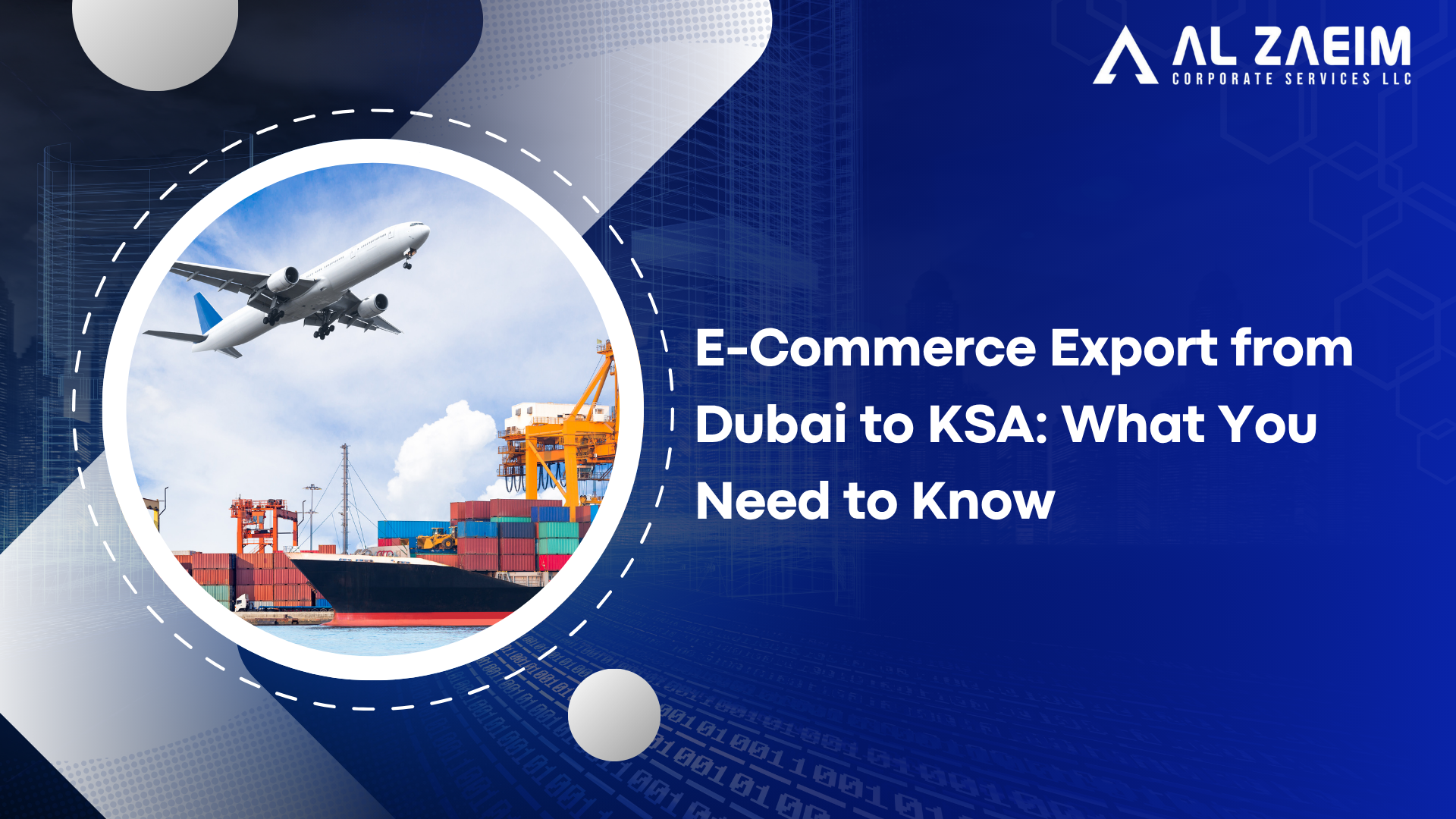
The UAE e-commerce market is thriving. And if you’ve been watching the numbers, you’ll know it’s not just about selling locally anymore. More and more businesses are looking across the border, spotting opportunities in Saudi Arabia’s booming online retail scene. For Dubai-based e-commerce brands, exporting to KSA isn’t just an option—it’s becoming a strategic move to tap into one of the fastest-growing digital economies in the region.
But here’s the catch—cross-border e-commerce trade is not just about shipping a package. It’s about compliance, market positioning, and understanding regional consumer behavior. And that’s where the real game begins.
Let’s put it this way—Saudi Arabia’s e-commerce market is on fire. Young, tech-savvy buyers. Increasing smartphone penetration. Rising trust in online shopping. And a government-backed push for digital transformation. It’s the perfect storm for online sellers.
Dubai’s logistics ecosystem gives businesses a massive advantage—world-class shipping, quick customs clearance, and a central location that makes deliveries to Riyadh or Jeddah faster than ever. Add to that the GCC trade framework, and you’ve got a recipe for smooth, profitable expansion.
Here’s where many entrepreneurs trip up. Selling to Saudi Arabia from Dubai involves customs regulations, product standards, and e-commerce laws that are different from the UAE. There are tax and compliance frameworks to follow, and trust us—skipping the details can cost you.
While the process may sound straightforward, the execution often requires navigating multiple government systems, certifications, and documentation. That’s why most serious exporters prefer to work with experts who already know the drill—because in cross-border trade, speed and accuracy are everything.
If you want to succeed in Dubai-to-KSA e-commerce exports, you have to understand what Saudi consumers actually want. Luxury items? Absolutely. Affordable fast fashion? Big yes. Electronics and gadgets? Always trending. But it’s not just about the product—it’s about delivery times, payment options, and trust.
Cash-on-delivery is still a popular choice in KSA, although digital payments are growing fast. Social media platforms like Instagram and Snapchat are major product discovery channels. And brand trust? Non-negotiable.
Operating out of Dubai gives you not only tax advantages but also the credibility of being based in a global trade hub. It’s no wonder that many GCC-focused brands choose Dubai as their base for logistics, warehousing, and operations.
The best part? You’re not just selling to Saudi Arabia—you’re setting yourself up for regional dominance. Once you’ve cracked the Dubai–KSA route, Bahrain, Oman, and Kuwait are just a few steps away.
While the market is ripe for the taking, entering it the wrong way could slow you down—or worse, block you out. That’s why working with a business setup and compliance partner who understands both UAE and KSA market requirements can save you months of headaches.
And that’s where Al Zaeim Corporate Services steps in—helping businesses take their e-commerce from Dubai to KSA without the usual delays, confusion, or regulatory missteps.
Q1: Is KSA a profitable market for Dubai-based e-commerce businesses?
👉 Yes. With rising online shopping adoption and strong purchasing power, KSA is one of the most lucrative GCC markets for e-commerce sellers.
Q2: Do I need special approvals to sell in Saudi Arabia?
👉 Yes, certain product categories require regulatory clearances and compliance with Saudi standards.
Q3: Will I be Is funding guaranteed in these programs?
👉 Navigating customs and ensuring fast delivery while meeting local market expectations.
Q4: Are there tax implications when selling to KSA from Dubai?
👉 Yes, VAT and customs duties apply depending on the product type and trade framework.
Q5: How can I make the expansion process faster?
👉 By working with a specialized corporate services provider who knows both UAE and KSA compliance requirements.